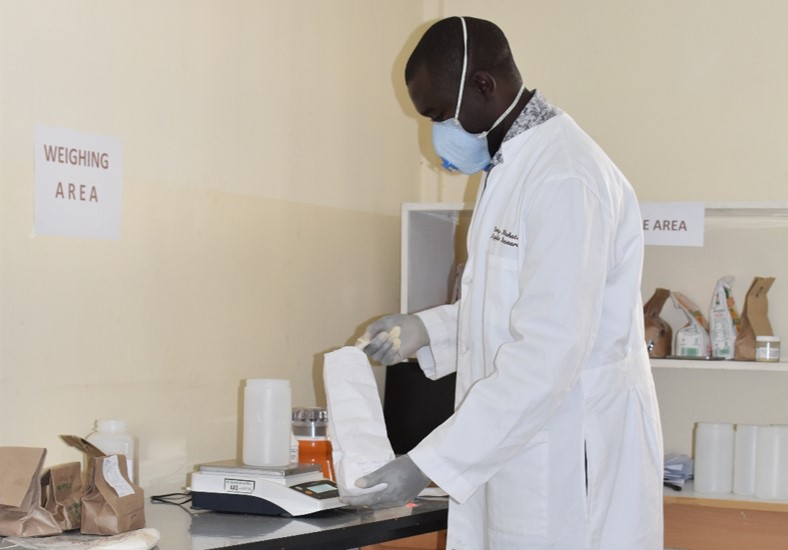Facilitating ISO Accreditation

Sammy Khakata performs lab duties at the University of Nairobi Chiromo campus
Accreditation Documentation
Test Kit Price Lists
The implementation of a quality management system is critical to aflatoxin risk management. A quality management system can be defined as follows:
You can’t improve what you do not control,
you can’t control what you do not measure, and you can’t measure what you do not define. Implicit in
this statement is that aflatoxin measurements are accurate and representative.
Firms that participate in the APTECA program develop food safety plans, which are outlined in the APTECA Handbook. The food safety plan prescribes
product sampling and testing frequency. To ensure the firms testing accuracy, APTECA provides reference materials. An additional step to ensure testing
accuracy includes verification of a firm’s results in the AgriLife ISO/IEC 17025:2005 accredited laboratory located on the University of Nairobi Chiromo
campus. Key elements in an ISO accredited laboratory include proficiency, traceability, and uncertainty. Following implementation of the APTECA program,
participating firm’s testing accuracy improved to 95%.
Texas A&M AgriLife Research first established an ISO/IEC 17025:2005 accredited laboratory on the ILRI campus. Then, in 2019, AgriLife transferred its
ISO/IEC 17025 accreditation to the University of Nairobi Chiromo campus. The APTECA program continues to assist these and other laboratories in their
pursuit of ISO accreditation through training, one-on-one assistance, access to a no cost aflatoxin proficiency testing program, and through the sale
of reference material.
Benefits
- Ensure labs around the world are producing similar results
- Improve testing accuracy of firms
- Promote a connected, transparent market
- Facilitate commerce